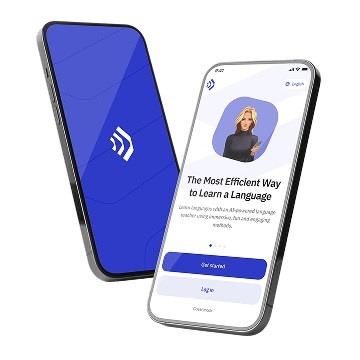Learning German in Lithuania is becoming increasingly popular due to the strong economic and cultural ties between Germany and Lithuania. Germany is one of Lithuania’s main trading partners, and fluency in German can open up numerous opportunities for professionals, students, and businesses. Additionally, the rich history and culture of the German language make it an appealing choice for language learners.
Enhanced Career Opportunities: Many German companies operate in Lithuania, and having German language skills can significantly boost your employability in sectors such as finance, engineering, and IT.
Educational Prospects: Proficiency in German provides Lithuanians with greater access to prestigious German universities and scholarship programs like DAAD (German Academic Exchange Service).
Cultural Appreciation: Learning German also allows individuals to delve deeper into the rich literary, musical, and philosophical heritage of the German-speaking world.
German Language Courses in Lithuania
Lithuania offers a variety of options for learning German, from university courses to private language schools and online platforms. Each option caters to different needs, whether you’re looking for intensive language training, flexible schedules, or specific focuses like business German.
University Language Programs: Many universities in Lithuania, including Vilnius University and Kaunas Technology University, offer German language courses as part of their foreign languages departments. These courses are often available to both students and external participants.
Private Language Schools: Schools such as Kalba.lt and Lingua Lituanica in Vilnius provide a range of German language courses that cater to all levels, from beginners to advanced speakers. These institutions often offer small class sizes and employ native speakers as instructors.
Online Learning Platforms: Websites like Duolingo, Babbel, and Rosetta Stone offer flexible options for learning German at your own pace. Additionally, Goethe-Institut has an online platform specifically tailored for German learners, providing certificates recognized globally.
Integration of Language Learning with Cultural Activities
Enhancing your German learning experience in Lithuania can be significantly enriched by participating in cultural exchange activities. Engaging with the language in practical settings helps solidify the skills learned in the classroom.
German Cultural Events: Participate in events organized by the German Embassy or cultural organizations like Goethe-Institut. Activities range from film festivals to book readings and traditional German holiday celebrations.
Language Meetups: Join language exchange meetups or German-speaking clubs in major cities such as Vilnius and Kaunas. These meetups are great for practicing conversational German and meeting fellow language learners.
Study Trips to Germany: Some language schools and universities offer study trips to Germany. These trips can provide immersive language practice and a firsthand experience of German culture.
Resources and Materials for Learning German
A wealth of resources is available for German learners in Lithuania. Utilizing a combination of textbooks, online resources, and real-life practice can accelerate the learning process.
Textbooks and Workbooks: Popular German textbooks such as “Menschen” and “Schritte International” are available at major bookstores in Lithuania or can be ordered online. These books often come with supplementary materials like CDs and online exercises.
German Media: Listening to German radio stations, watching German films, and reading German newspapers can enhance language skills and provide cultural insights. Deutsche Welle, a German broadcaster, offers news and information in German specifically designed for language learners.
Mobile Apps: Language learning apps like Anki, for flashcards, or Tandem, for language exchange, can be useful tools for vocabulary building and real-time practice.
Challenges and Tips for Effective Learning
While learning German in Lithuania is accessible, it comes with its set of challenges. Awareness of these hurdles and how to manage them can make the learning process smoother and more enjoyable.
Motivation: Keeping motivated can be challenging, especially for beginners. Setting clear goals and reminders of why you started learning German can help maintain focus and motivation.
Language Complexity: German is known for its complex grammar and syntax. Regular practice and patience are crucial. Don’t hesitate to ask for help from teachers or peers when you encounter difficulties.
Practice Opportunities: Finding regular opportunities to speak German in Lithuania might be limited. However, making use of online communities, language meetups, and German-speaking friends can provide valuable practice.
Conclusion
Learning German in Lithuania is a worthwhile endeavor that offers multiple benefits from career advancement to cultural enrichment. By choosing the right learning environment, integrating cultural activities, and utilizing diverse resources, anyone in Lithuania can embark on a successful German language learning journey. The key to mastering the language lies in consistent practice, real-world application, and continuous engagement with the language community.





